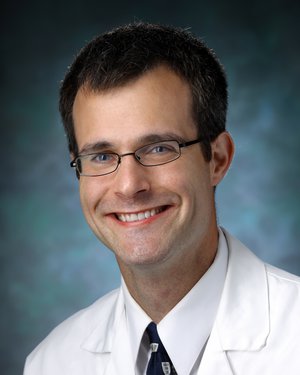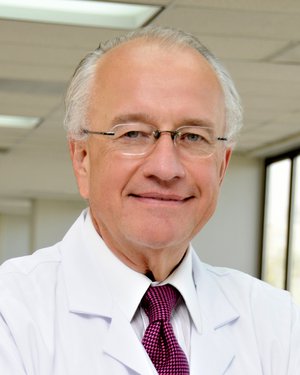Research Lab Results
-
Frederick Sieber Lab
The Frederick Sieber Lab studies the impact of sedation on geriatric surgical patients—especially those undergoing orthopaedic or pelvic procedures—with the goal of preventing postoperative delirium. We are using electroencephalography to investigate the effect of sedation depth during spinal anesthesia. We are also working to determine the effects of using propofol for sedation in elderly patients as well as the effects of robotics and surgical positioning on cerebral blood flow. -
Marek Mirski Lab
Work in the Marek Mirski lab explores the subcortical mechanisms of seizure propagation and cortical synchrony. The primary goal of our research is to develop methodologies for inhibiting seizures using site-specific subcortical electrical stimulation. Our identification of synaptically linked subcortical elements that contribute to seizure propagation has led to FDA-sanctioned phase III clinical trials to assess the use of targeted thalamic stimulation in patients with intractable seizures. We also conduct clinical research on the treatment of acute head injury, elevated intracranial pressure, cerebral edema, ischemic stroke and ICU sedation. -
Timothy Niessen Lab
The Timothy Niessen Lab studies patient outcomes in the ICU. We are particularly interested in the effects of sleep quality, delirium transitions and sedation on the improvement of intensive care patients. Our investigators also focus on the practices of internal medicine interns, studying the variability of hand washing hygiene, etiquette-based communication and time spent in direct and indirect patient care. We have also studied the onset of myelopathy as a result of B12 deficiency from long-term colchicine treatment and recreational nitrous oxide use.
-
John Ulatowski Lab
Research in the John Ulatowski Lab explores the regulatory mechanisms of oxygen delivery to the brain and cerebral blood flow. Our work includes developing and applying new techniques and therapies for stroke as well as non-invasive techniques for monitoring brain function, fluid management and sedation in brain injury patients. We also examine the use of novel oxygen carriers in blood. We’ve recently begun exploring new methods for perioperative and periprocedural care that would help to optimize patient safety in the future. -
Sapna Kudchadkar Lab
Work in the Sapna Kudchadkar Lab focuses on the impact of sleep disturbances on critically ill children and the impact of sleep promotion, optimizing sedation and preventing delirium in pediatric critical care patients. We're investigating the effects of critical illness on sleep-wake cycles during short- and long-term recovery using actigraphy.




